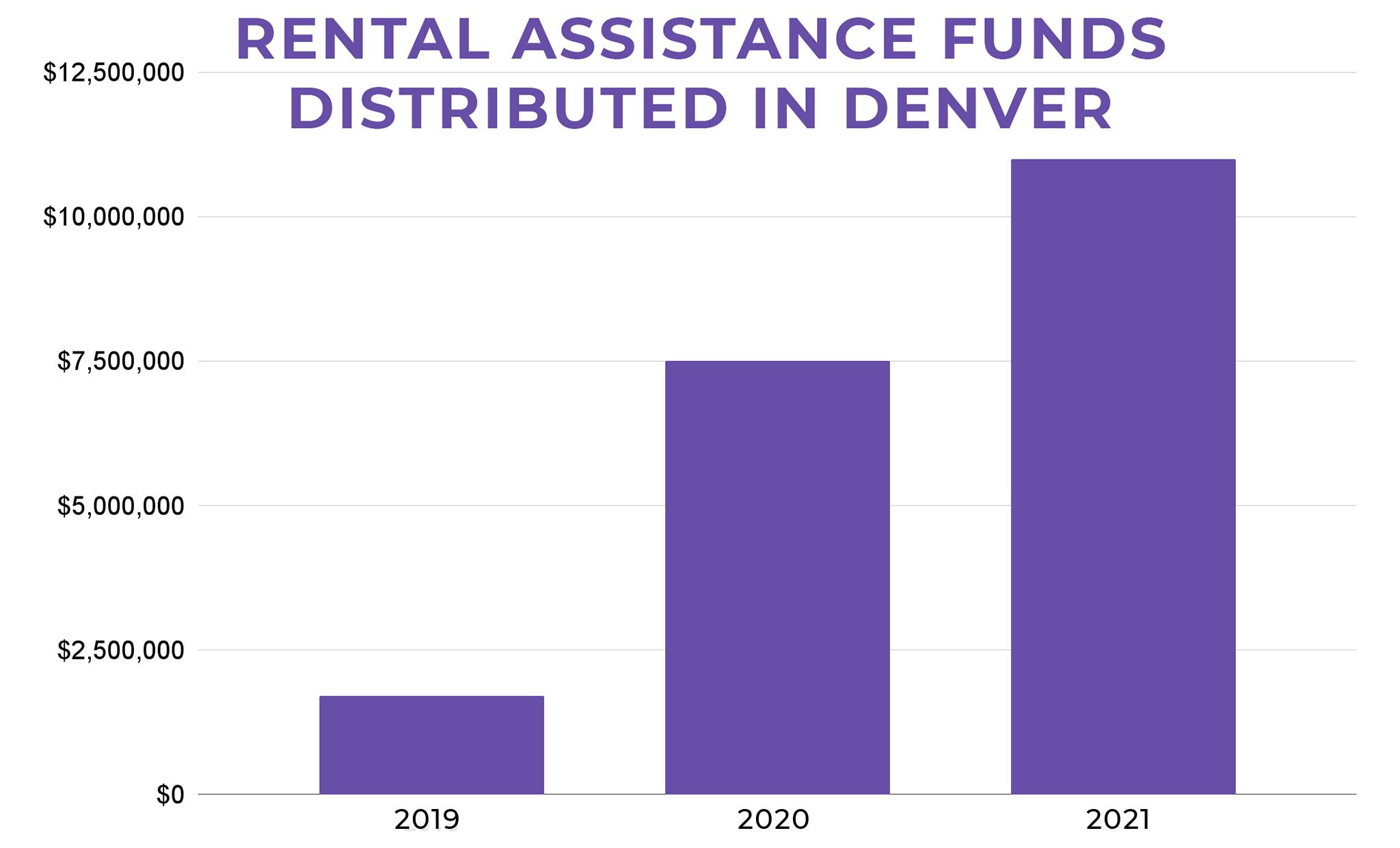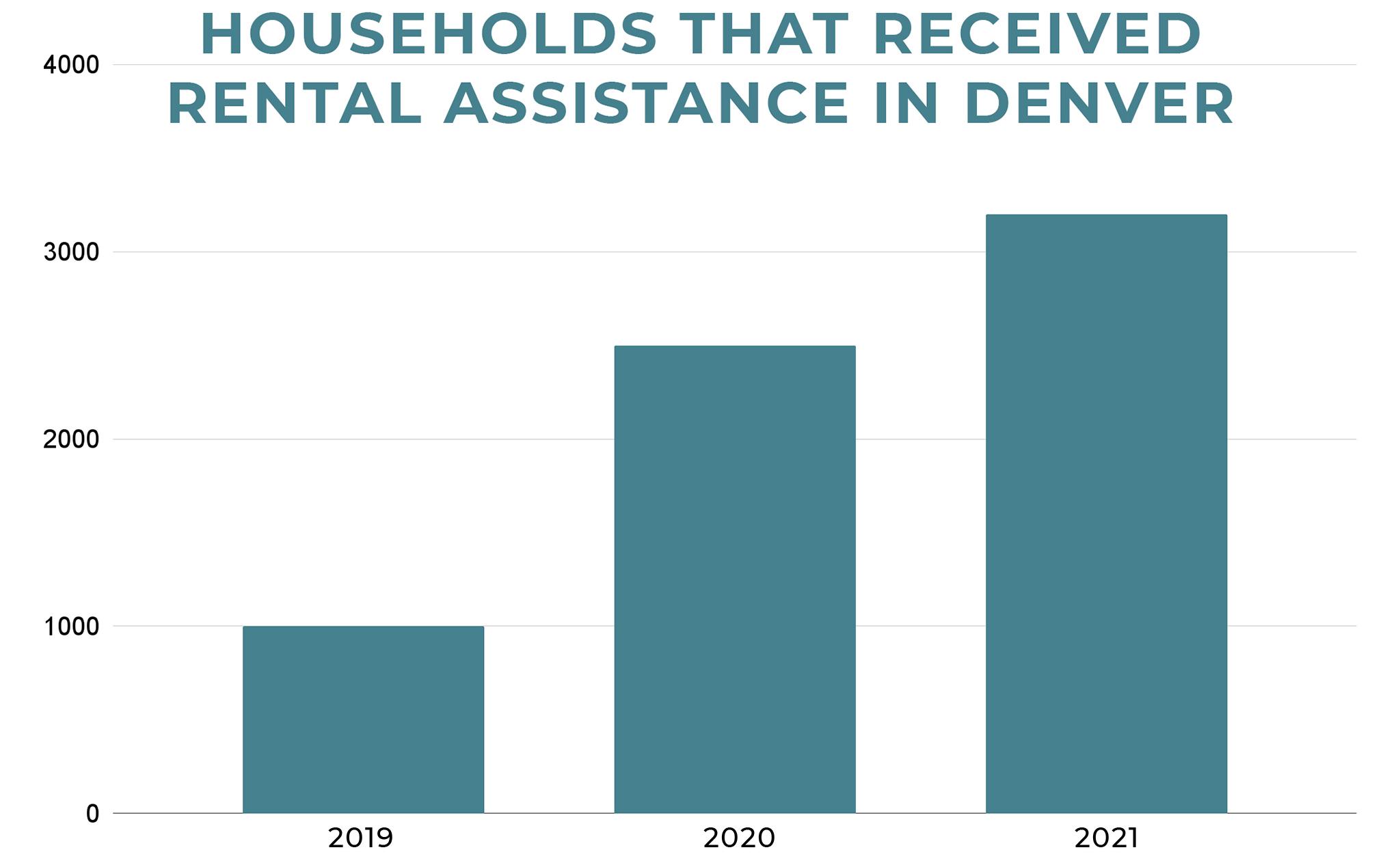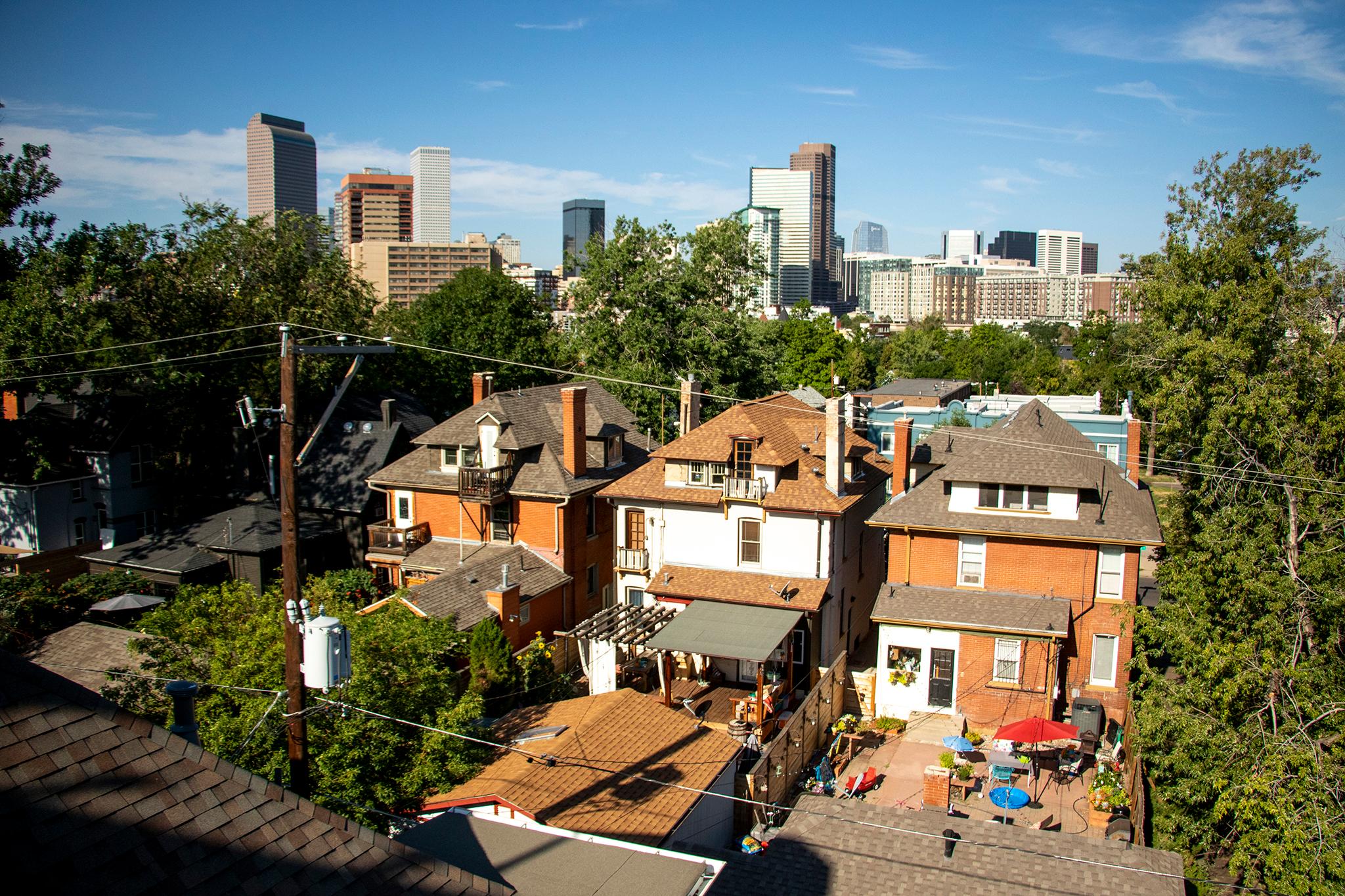If you spend enough time in Facebook's Denver neighborhood groups or on NextDoor, you'll likely find posts from people desperate for help making rent. A flurry of these asks that got us thinking about Denver's rental assistance programs, especially because commenters regularly pointed posters to city resources.
We asked Melissa Thate, who's with the Denver Department of Housing Stability, how things have been going. Her answer: Federal dollars have flooded program coffers to help the city address need that has grown substantially.
In 2019, Denver distributed $1.7 million in rental assistance. Between January and November of 2020, that grew to $11 million, a six-fold increase.
While Thate said duplicate applications make it hard to quantify how many people have asked for help, she estimated application volume doubled between 2019 and 2020.
"It was significant," she told us. "We're seeing it this year as well."

In 2016, Denver City Council approved the Temporary Rental and Utility Assistance program, known as TRUA.
Applications opened in 2017, allowing people in households making less than 80 percent of area median income (AMI) to get help paying their landlords.
"We started with some fairly modest contracts and quickly found out the need," Thate told us. "Then, we ran out of funds and ended up increasing those initial contract amounts."
The program grew slowly through the following years, but things changed quickly when COVID shut Denver down.
In November of 2020, City Council voted to transfer an extra $2 million into TRUA's accounts. People were clamoring for help, and some of the nonprofits who approve applications and distribute cash had actually run out of money by October.
Then, in 2021, the U.S. Treasury department issued money for its Emergency Rental Assistance Program, known as ERAP. (The numbers in the chart above represent money paid out from both ERAP and TRUA dollars.)
The federal funds came in two installments, which must be used by 2025. In total, Thate told us, the city will receive $49,159,548.30 from Treasury.
When it runs out, Thate said she and her colleagues hope to keep the momentum going. She's not sure where the city might get millions of dollars to fill the void, but she said officials are looking into it.

Need help on rent? Here's how to start looking into resources.
Thate said the first thing people should do is head to denvergov.org/rentassistance. The page has info on both TRUA and ERAP, which each have different restrictions and requirements. People who want to apply should call 311 (and press 6) to get connected to one of the nonprofits that does the boots-on-the-ground work. They'll navigate people to one of the two pots of money.
For both TRUA and ERAP, applicants' households must earn less than 80 percent AMI which, in 2021, was $55,950 for a household of just one person. A four-person household would have to collectively earn less than $79,900. The city keeps a full list of AMI numbers by household size.
TRUA applicants must live in Denver, but ERAP money is available across the state. Applicants must also prove they're experiencing financial hardship, which generally involves producing tax documents or paystubs that show applicants dealt with a loss of income due to COVID or otherwise.













